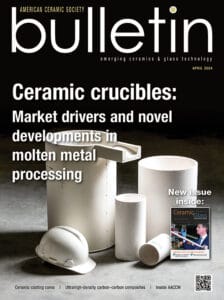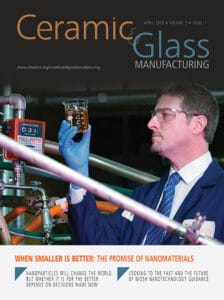This symposium provides a platform to present and discuss recent advances in complex oxide thin films, heterostructures, and nanocomposites. Topics of interest include strain-stabilization, interface engineering for heterostructures, emergent interfacial properties, new materials discovery, field tunable responses, device applications, and advanced measurement/characterization methods. Contributions that connect synthesis science to structure and property trends are of particular interest, as are those which link computational and experimental efforts. The goal is to create an international and interdisciplinary forum for scientists and researchers from industry, academia, and national laboratories to exchange ideas and to foster collaboration.
Broad areas of interest include the theoretical understanding and design of material properties using first principles based methods; stabilizing new structures and useful functionality through strain and heterointerface engineering within multilayers and vertically aligned nanocomposites; understanding the relationship between process space and equilibrium defect chemistry, strain induced defects and interfacial microstructure and their relationships to material properties; and device fabrication and applications in energy harvesting, memories, sensors, etc. Specific properties of interest are magnetic, electronic, ionic and photonic responses, as well as thermal transport phenomena, including correlation and quantum-confinement effects.
Proposed Sessions
- Theory, modeling and first principles calculations of complex oxide thin films and heterostructures with focuses on strain and interface
- Controlled synthesis of lateral and vertical heteroepitaxial thin films and nanocomposites including heterostructures, superlattices, and vertically aligned nanocomposites
- Synthesis and properties of high entropy complex oxides
- The effects of film growth conditions on strain, interface and functional properties
- New materials/structures enabled via controlled synthesis
- Characterizations of strain, defects and interface
- Strain relaxation and its correlation to functional properties
- Strain, microstructures and functionality tuning in lateral and vertical nanocomposites
- Phenomena arising from strain couplings and interface couplings, including quantum phases and topological states
- Interface phenomena induced by charge redistribution, magnetic, electronic and orbital reconstructions, intermixing, structural distortion, etc
- Control of interface phenomena via external stimuli such as electric and magnetic fields, and light
- Strain and interface controlled device performance in energy harvesting, memories, sensors, etc.
Symposium Organizers
- Aiping Chen, Los Alamos National Laboratory, USA, apchen@lanl.gov
- Elizabeth Paisley, Sandia National Laboratories, USA, eapaisl@sandia.gov
- Hyoungjeen Jeen, Pusan National University, South Korea, hjeen@pusan.ac.kr
- Jon-Paul Maria, Pennsylvania State University, USA, jpm133@psu.edu
- James Rondinelli, Northwestern University, USA, jrondinelli@northwestern.edu
- Sean Smith, Sandia National Laboratories, USA, ssmith5@sandia.gov
- Judith L. MacManus-Driscoll, University of Cambridge, UK, jld35@cam.ac.uk
confirmed invited speakers
- John Ekerdt, University of Texas, Austin, USA
- Roman Engel-Herbert, Pennsylvania State University, USA
- John Freeland, Argonne National Laboratory, USA
- Arthur Hebard, University of Florida, USA
- Megan Holtz, Cornell University, USA
- Divine Kumah, North Carolina State University, USA
- Ho Nyung Lee, Oak Ridge National Laboratory, USA
- Peter Petrov, Imperial College London, UK
- Guus Rijnders, University of Twente, Netherlands
- Uwe Schroeder, NamLab GmbH, Germany
- Aloysius Soon, Yonsei University, South Korea
Subscribe to Ceramic Tech Today

Don’t miss the latest ceramic and glass materials news. Receive the CTT newsletter to your email three times a week by subscribing at this link.
Subscribe to Ceramic & Glass Manufacturing Weekly

Don’t miss the latest ceramic and glass business news. Receive the C&GM Weekly newsletter to your email every Monday by subscribing at this link.


